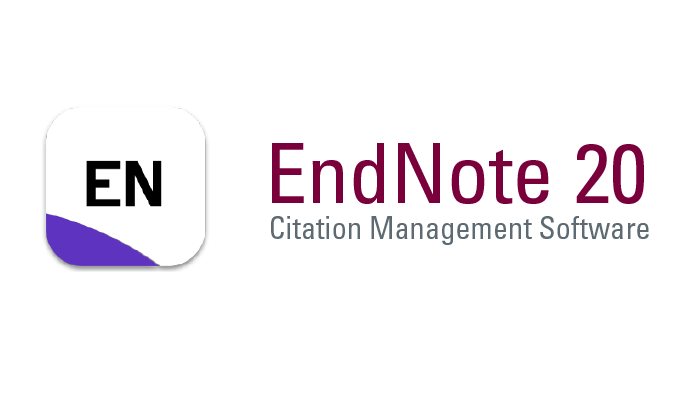MENGEMBANGKAN BUDAYA ISLAM BERKEMAJUAN MELALUI LEMBAGA PENDIDIKAN
DOI:
https://doi.org/10.47887/amd.v5i2.167Keywords:
Progressive Islam, inculturation, educational institutionsAbstract
The purpose of this research is to conduct an empirical and practical study of the characteristics of progressive Islam and inculturation in Muhammadiyah educational institutions. In turn, it will be an inspiration and model of progressive education in the world of education. The research method is to use literature sources (library research). This means that the data and study materials used are from library sources. As for the results of the study that the characteristics of progressive Islam (al-Islam al-Taqaddumi), which includes a progressive view of Islam in five characteristics (al-Khasha'ishu alhamsu). These characteristics are: (1) Based on Tawhid (al-Mabni 'ala al-Tauhid); (2) Emphasising human thought from shirk, syncretism and religious nationalism; (3) Upholding reason and science; (4) Promoting social justice; (5) Emphasising the importance of noble character. The inculturation of progressive education is done by First, building schools that integrate religious and general education and strengthen school branding. Second, developing education based on social life and the needs of society and the world of work. Third, reforming the system and values by adopting modern values of the 21st century.
References
Afandi. (2021). Tiga Unsur Konsep Pendidikan Berkemajuan. Retrieved from https://muhammadiyah.or.id/tiga-unsur-konsep-pendidikan-berkemajuan/
Ali, M. (2016). Membedah Tujuan Pendidikan Muhammadiyah. PROFETIKA, 17, 13.
Ardianto, A. (2021). Alhamdulillah, 5 PTM Masuk 100 Besar Rangking Universitas se- Indonesia Versi Webometrics. Retrieved from https://muhammadiyah.or.id/alhamdulillah-5-ptm-masuk-100-besar-rangking- universitas-se-indonesia-versi-webometrics/
Awaluddin, A. & Saputro, A.D. (2020). Rekontruksi Pemikiran KH. Ahmad Dahlan Dalam Pendidikan Islam Berkemajuan” . Yogyakarta.
Darmawan, A. (2022). Inilah Lima SMA/MA Muhammadiyah Terbaik dalam Top 1000 Sekolah Tahun 2022. Retrieved from https://pwmu.co/253848/08/28/inilah-lima-sma-ma- muhammadiyah-terbaik-dalam-top-1000-sekolah-tahun-2022/
Dikdasmen pp muhammadiyah. (2017). Petunjuk Teknis Implementasi Kurikulum ISMUBA. Retrieved from https://dikdasmenppmuhammadiyah.org/petunjuk-teknis/
Dinamika Masyarakat Dan kebudayaan. (2021). Retrieved from https://www.studocu.com/id/document/universitas-sriwijaya/kebudayaan- nasional/proses-pembudayaan/27700397
Ilham. (2021). Penjelasan Haedar Nashir Tentang Faktor Kelahiran Muhammadiyah. Retrieved from https://muhammadiyah.or.id/penjelasan-haedar-nashir-tentang-faktor-kelahiran- muhammadiyah/
Jaenuri, J. (2019). Sistem Pendidikan Islam dalam Kerangka Nasionalis-Religius Berbasis Rahmatan lil ’alamin. Matan: Journal of Islam and Muslim Society, 1(1). https://doi.org/10.20884/1.matan.2019.1.1.1904
Kamad, D. (2022). Pendidikan Islam Berkemajuan di tengah Entitas Kultural (p. 26). UMP Press. https://doi.org/https://doi.org/10.30595/pssh.v9i.743
Mu’ti, A., Ulhaq, F. R., & Khoirudin, A. (2016). Kosmopolitanisme Islam Berkemajuan Catatan Kristis muktamar Teladan ke-47 Muhammadiyah di Makasar 2015 (1st ed., Vol. 1). Surakarta: Muhammadiyah Univercity Press.
Muhammadiyah, P. (2023). Tanfidz Keputusan Muktamar Ke-48 Muhammadiyah Tahun 2022. Retrieved from https://muhammadiyah.or.id/download/tanfidz-keputusan- muktamar-ke-48-muhammadiyah-tahun-2022/
Purwanto, H. (1999). Asimilasi, akulturasi dan Integrasi nasional. Humaniora, 12, 29–37. Retrieved from https://journal.ugm.ac.id/jurnal-humaniora/article/download/668/514 Rahardi, F. (2018). Muhammadiyah Usung Pendidikan Islam Berkemajuan: Pendidikan konservatif akan teralienasi dari kehidupan modern abad 21. Retrieved from https://news.republika.co.id/berita/p98du7291/muhammadiyah-usung-pendidikan-islam- berkemajuan
Sonah. (2020). Strategi Membangun Sekolah Muhammadiyah yang Bermutu. Retrieved from https://klikmu.co/strategi-membangun-sekolah-muhammadiyah-yang-bermutu/
Downloads
Published
How to Cite
Issue
Section
License
Copyright (c) 2025 Azizah Azizah

This work is licensed under a Creative Commons Attribution-ShareAlike 4.0 International License.
Authors retain copyright and grant the journal right of first publication and this work is licensed under a Creative Commons Attribution-ShareAlike 4.0 that allows others to share the work with an acknowledgement of the works authorship and initial publication in this journal.
All articles in this journal may be disseminated by listing valid sources and the title of the article should not be omitted. The content of the article is liable to the author.
Authors are able to enter into separate, additional contractual arrangements for the non-exclusive distribution of the journal's published version of the work (e.g., post it to an institutional repository or publish it in a book), with an acknowledgment of its initial publication in this journal.
Authors are permitted and encouraged to post their work online (e.g., in institutional repositories or on their website) prior to and during the submission process, as it can lead to productive exchanges, as well as earlier and greater citation of published work.
In the dissemination of articles by the author must declare the Al-Madaris Jurnal Pendidikan dan Studi Keislaman as the first party to publish the article.














